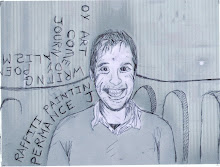 It is hard to believe. Unfathomable. There is something more deeply shocking about a gunman on a rampage in a quaint English town, than, say, a major terrorist attack in a city. The motives behind the shootings are currently unknown and perhaps will never be ascertained. But it is wholly disturbing to read or hear about Mr Derrick Bird's sudden, ruthless killings. 12 people dead. 11 people injured. And within 3 hours.
It is hard to believe. Unfathomable. There is something more deeply shocking about a gunman on a rampage in a quaint English town, than, say, a major terrorist attack in a city. The motives behind the shootings are currently unknown and perhaps will never be ascertained. But it is wholly disturbing to read or hear about Mr Derrick Bird's sudden, ruthless killings. 12 people dead. 11 people injured. And within 3 hours.With any other act of 'terror' we can simply attribute the causes to the illogic of religious fanaticism. With these killings, illogic seems not even plausible. We are instead left only with the incredulous, the indefinable; something more primal. This wasn't about a clash of ideologies per se, but, as reports suggest, it concerned a dispute over a will and problems at a taxi rank.
The night before the Wednesday attacks in Whitehaven, Mr Bird apparently told a taxi colleague, after a row: 'you won't see me again.' The next day, however, Mr Bird killed his twin brother David and then his solicitor, Kevin Commons, before taking aim at a fellow taxi driver. Eye witnesses claim that Mr Bird had a shotgun with a telescopic aim. How can a man just go on a killing spree, using a precision weapon, when the motives were simply due to a will and a taxi rank? (I use 'simply' here with some doubt.) The only way to course any kind of logic is that Mr Bird's anger from the night before escalated, grew overnight, so that by morning it had possessed him with primordial aggressiveness. His first victims were clear: his brother, solicitor and taxi colleagues. These killings must have completely consumed him, fanned his demonic fury, until he subsequently killed at random before finally self-destructing; killing himself. It may sound perverse, but I cannot help thinking that this resembles the character played by Michael Douglas in 'Falling Down'. However, there is nothing funny about this, no redeeming feature. Mr Bird was tipped over some edge and went berserk, and killed. Surely, there has to be more to the story?
Recent interviews have revealed that Mr Bird was rather well-liked in Whitehaven, that he had become a grandfather and enjoyed motorsports and scuba diving. His taxi friends has known him for years. Glenda Peers, the owner of the taxi firm, said that 'the lad that's been killed was friends with him - they used to stand together having a craic on the rank.' A local land-lady said that this was not the Derrick Bird they all knew, that he was quiet, but friendly. A local neighbour said that he was known as 'birdy' and would often sit on his doorstep, sip a tea, and start conversations with passers-by. And nearly everyone interviewed has expressed deep shock; that Mr Bird, 'birdy', was completely normal.
It is sometimes possible to imagine a commuter, in perhaps London, getting stressed out beyond measure and throwing a punch at someone. We have all been there when we've been tipped over the edge and we are fuming with anger. It is part of being human. Mr Bird, though, went beyond human, or perhaps sub-human. Is this all we can say of it? That his rational, good side was taken over by something else? Unless more evidence is revealed to prove the contrary, I reckon that Mr Bird's actions will be viewed purely as an indescribable, unfathomable 'possession'. This is what shocks us more than anything; that we are all suspectible to irrational urges, but to commit such brutality is beyond comprehension. It is at the limits of human experience; a place that greatly disturbs.



